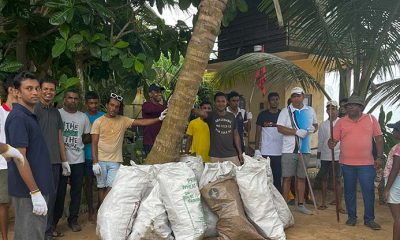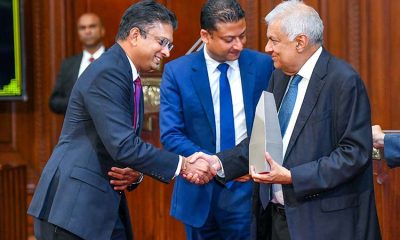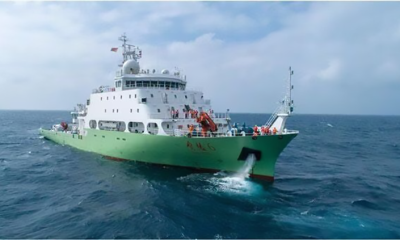News
AG stresses judiciary should be free from other branches of Govt. and private and partisan interests
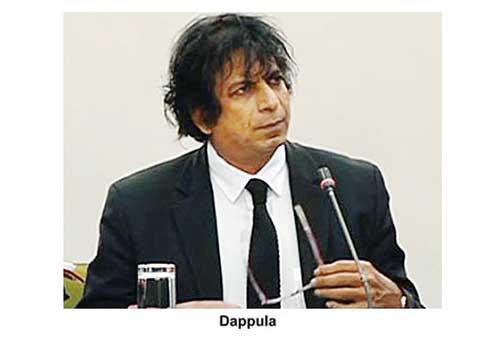
Declaring that courts must necessarily occupy a high position of power, privilege and independence in the life of a nation, Attorney General Dappula De Livera, PC, yesterday (20) emphasised that judges in the exercise of judicial functions should be immune from external control and influence and intimidation.
The AG said so at the ceremonial sitting of the Supreme Court to welcome Justice Dileep Nawaz, Ladyship Justice Kumudini Wickramasinghe and Justice Shiran Gooneratne.
The following is the text of the AG’s speech: I am constrained by time but I shall not waste a minute. My Lords and My Lady you commenced your legal careers and were moulded in the Attorney General’s Department and after long and faithful service to the Institution of the Attorney General finally adorned the Bench and embarked on a career in the Judiciary which has now already spanned several years.
There is no doubt that Your Ladyship and Lordships are well equipped and experienced to undertake the responsibilities and discharge the functions of this onerous and exalted office. I have also no doubt that today, must be a very satisfying and memorable day for your Lordships and Ladyship. A sense of achievement and accomplishment no doubt.
It would also be a time and a day to look back and reflect on the past and take stock of that long journey and reaffirm your commitment to overcome challengers and uphold the Rule of law meting out good quality justice to the yearning men, women and children of this country.
In Sri Lanka the courts have quite justly come to be regarded as the sentinel over the powers of the legislature and the executive in order to safeguard the rights of the citizen under the law and the constitution.
The credibility of a judicial system in a country is dependent on the Judges who man it. Judges must be persons of impeccable integrity and unimpeachable independence. A Judge must discharge his judicial functions with high integrity, impartially and intellectual honesty. Speaking of intellectual honesty; the law would be like a ball of clay in the hands of an erudite Judge. Therefore, Judges should be ruthlessly honest, independent, and impartial and possess a judicial conscience to ensure that the ball of clay is molded according to law.
For over 2000 years of the island’s long history, the Courts of Law have occupied a unique place in the system of government. Public acceptance of the judiciary and public confidence in the judiciary is necessary for the rule of law to prevail in the country. Public confidence in the judiciary is dependent on the independence and integrity of the judiciary.
The sovereignty is in the people and is alienable and that sovereignty of the people is exercised by the judiciary in the public trust. The independence and the integrity of the judiciary ought to be preserved for justice and the rule of law to prevail in a society. A judiciary should not only be independent but appear to be independent in order to gain the confident of the people.
An independent judiciary is the corner stone the prevalence of the Rule of Law in a democratic society.
The essence of rule of law has been said to be that the Administration is bound by the law and that in it cannot interfere with the rights of the individual except in accordance with the law.
The International Congress of Jurists meeting in New Delhi in January 1959 concluded “that an independent judiciary is an indispensable requisite for a free society and for the Rule of Law to prevail in a society.
The independence and impartially of the judiciary is essential for a democratic system of government to function under the Rule of Law.
The maintenance of the independence of Judges and of the quality of the administration of justice would largely depend on the Judges themselves and the state of public opinion of the country, which demands their independence and impartially.
Within the limits of their power and jurisdiction the courts are required to perform a dynamic role as the fearless upholders of the principle of equal justice under the Rule of Law.
“Not all the guns of the Garrison leveled at their lordships would intimidate the Court” said Chief Justice Carrington in 1804 to General Wemyss who was brought up on a charge of contempt of court and had appeared with his staff wearing sidearms and bayonets.
In 1937 Chief Justice Abhrams questioned the deportation order of Mark Anthony Bracegirdle and said “the crown takes its stand upon what it submits are the unquestionable absolute powers of the governor and it is our duty to say that those powers are limited”. The governor’s order was made without Authority. The arrest and detention was illegal and Mr. Bracegirdle must be released”.
The Courts must necessarily occupy a high position of power, privilege and independence in the life of a nation.
The Judges in the exercise of judicial functions should be immune from outside control and influence and intimidation.
That independence is also necessary from the other branches of government and from private and partisan interest.
Judges should be above suspicion and should not leave even a glimpse for that suspicion to occur.
When Pompeia the wife of Julius Caesar secretly sneaked a man dressed as a woman into a Roman religious ceremony, her husband divorced her.
It was a girly prank. But the discovery of the man celebrating the mysteries of Bona Dea in the male free temple scandalised Ancient Romans and led to rumours that Pompeia is having an affair. Pompeia hadn’t committed adultery but it didn’t wash with Ceasar who kicked her to touch and insisted that his wife must be above suspicion.
Judges like Ceasar’s wife must also be above suspicion and the fundamental principle is that there should not be even a hint of bias or prejudice in the judicial process as is as vital today as it was 118 years ago when Lord Bowen famously compared judges to Ceasar’s wife.
The people will be judging you when you are judging them therefore that accountability and transparency ought to be seen and perceived from the judgments, pronouncements and orders that are delivered by the Courts.
Judge Ralph Mac Allister on the occasion of taking oaths as a Judge, State of Ohio, in December 1976, prayed for the Court as follows; He prayed that the Court always function with honour and integrity. That its pronouncements always be just. That its proceedings be conducted impartially. And finally that all its actions preserved the Peace and Dignity, the Rights and Prerogatives and the freedom and morality of all the people. That is my prayer too for this country.
Latest News
Minimum daily wage of plantation workers increased to Rs 1700
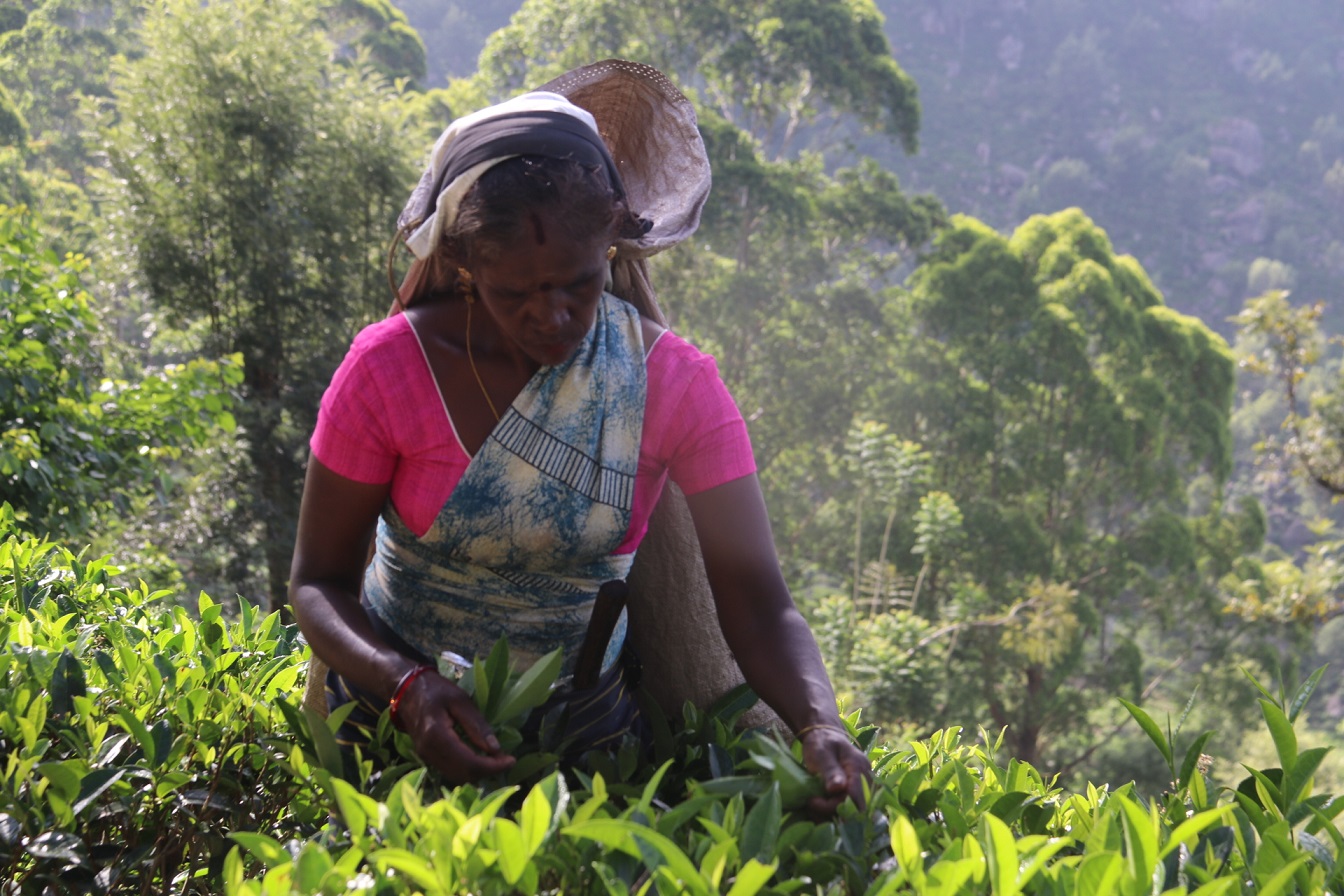
Addressing the Ceylon Workers Congress (CWC) May Day rally in Kotagala this morning (01) President Ranil Wickremesinghe announced that the minimum daily wage of plantation workers has been increased to Rs1700/-
The President said that a gazette extraordinary has been issued in this regard.
News
Prez accused of seeking to gain total control of public finance
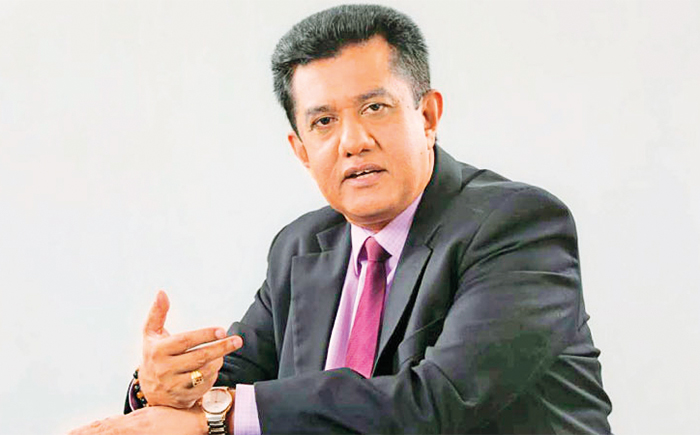
‘Public Debt Management Bill threat to democratic governance’
By Shamindra Ferdinando
Opposition MP Charitha Herath yesterday (30) alleged that the controversial Public Debt Management Bill that had been tabled in Parliament last week was aimed at bringing public sector finance entirely under the Finance Minister.
Claiming that UNP leader and President Ranil Wickremesinghe, in his capacity as the Finance Minister, seemed to be bent on achieving total control over public finance, dissident SLPP MP warned of dire consequences if the ruling party backed what he called an authoritarian move.
Herath dealt with the Public Debt Management Bill at a briefing held at the Nawala office of the Nidahasa Janatha Sabhawa.
Several members of the SLPP dissident group, including Prof. G.L. Peiris and Dr. Nalaka Godahewa, have aligned themselves with the main Opposition Samagi Jana Balawegaya (SJB).
The National List MP said that the proposed Bill would deprive other members of the Cabinet, including the Prime Minister, of powers so far exercised by them pertaining to their ministries and instead subjecting them to the Finance Minister’s control.
Once this Bill received the approval of Parliament, as far as public finance matters are concerned, all other ministries would be irrelevant, MP Herath said.
The issue at hand is that the President happened to be the Finance Minister, MP Herath said. Responding to a query regarding the responsibility of Parliament for public finance raised by The Island, MP Herath said: “In terms of Article 148, all public finances will be under the total control of Parliament. Therefore, the Finance portfolio, being under a person not represented in Parliament, is a matter for serious concern. If public finance is constitutionally under Parliament, the executive shouldn’t, under any circumstances, hold that particular portfolio.”
The Public Debt Management Bill had been formulated in such a way that once Parliament approved it, the Finance portfolio could be held only by a President, the Opposition MP said, asserting that the democratic way of governance was facing an extreme threat.
Asked to explain, MP Herath said that the latest move seemed to be in line with Wickremesinghe’s overall political strategy in the run-up to the presidential election.
MP Herath issued copies of the Bill to the media urging them to vigorously pursue the issue. The SLPPer found fault with political parties and the media for not paying sufficient attention to the developing dictatorial situation.
Referring to the passage of the Central Bank of Sri Lanka Bill on July 20, 2023, MP Herath said that though the UNP had just one National List MP in Parliament Wickremesinghe obviously achieved the unthinkable by craftily exploiting the current situation. The Second Reading of the Bill was passed by a majority of 42 votes, with 66 voting in favour and 24 voting against it.
The Public Debt Management Bill would cause further deterioration of democratic governance, MP Herath alleged, claiming that the President was seeking an apparatus hitherto unavailable to any President to control public finance.
MP Herath claimed that the Wickremesinghe-Rajapaksa government had formulated the Public Debt Management Bill on the basis of the IMF’s recommendations/conditions in the wake of the unprecedented economic crisis that erupted in late 2021. Acknowledging that the country hadn’t been out of the woods yet though the government finalized agreement with the IMF in March 2023 regarding the USD 2.9 bn bailout package, MP Herath said the solution couldn’t be found in an apparatus run by the executive.
Had that happened, there wouldn’t be any meaning to Parliament being constitutionally responsible for public finance, MP Herath said.
The first-time entrant to Parliament said that the UNP leader had no regard for democratic way of governance. The move to break-up the Ceylon Electricity Board (CEB) and privatize various cash cows meant that the UNP leader pursued his same old agenda that had been over and over again rejected by the electorate.
MP Herath urged his colleagues to be mindful of their responsibilities as the President was all out to privatize the remaining public assets.
News
Govt. to ban corporal punishment

The government has decided to prohibit corporal punishment.
Taking to ‘X’, President Ranil Wickremesinghe announced that the Cabinet had approved amendments to the Penal Code and Criminal Procedure Code to prohibit corporal punishment.
Pointing out that UNCRC Article 19 urges protection against all forms of violence towards children, the President has said the Committee on the Rights of the Child, in General Comment No. 8, stresses that corporal punishment must be prohibited in all settings.
President Wickremesinghe has said that the Cabinet approval paves the way for legal protections to ensure that no child in Sri Lanka suffers physical or mental violence.
The President has said the decision to ban corporal punishment was taken in view of the ‘International Day to End Corporal Punishment’, which fell on 30 April.
-

 Business5 days ago
Business5 days agoSri Lanka Resorts of Cinnamon Hotels & Resorts mark Earth Day with impactful eco-initiatives
-

 Business6 days ago
Business6 days agoDialog Axiata recognised as the Most Significant FDI Contributor by BOI
-

 Business6 days ago
Business6 days agoUNESCAP Technical Cooperation Highlights Report flags significant strides in its partnership with Sri Lanka
-

 Business7 days ago
Business7 days agoComBank crowned ‘Best Bank in Sri Lanka’ by Global Finance for 22nd year
-

 Business7 days ago
Business7 days agoCinnamon Lakeside Colombo welcomes Nazoomi Azhar as its new General Manager
-

 News4 days ago
News4 days agoGerman research ship allowed Sri Lanka port call after Chinese-protest led clarification
-

 News4 days ago
News4 days agoSri Lankan Oil and Gas exploration grinds to a standstill amid protracted legal battle
-

 Editorial6 days ago
Editorial6 days agoShocks from Bills












